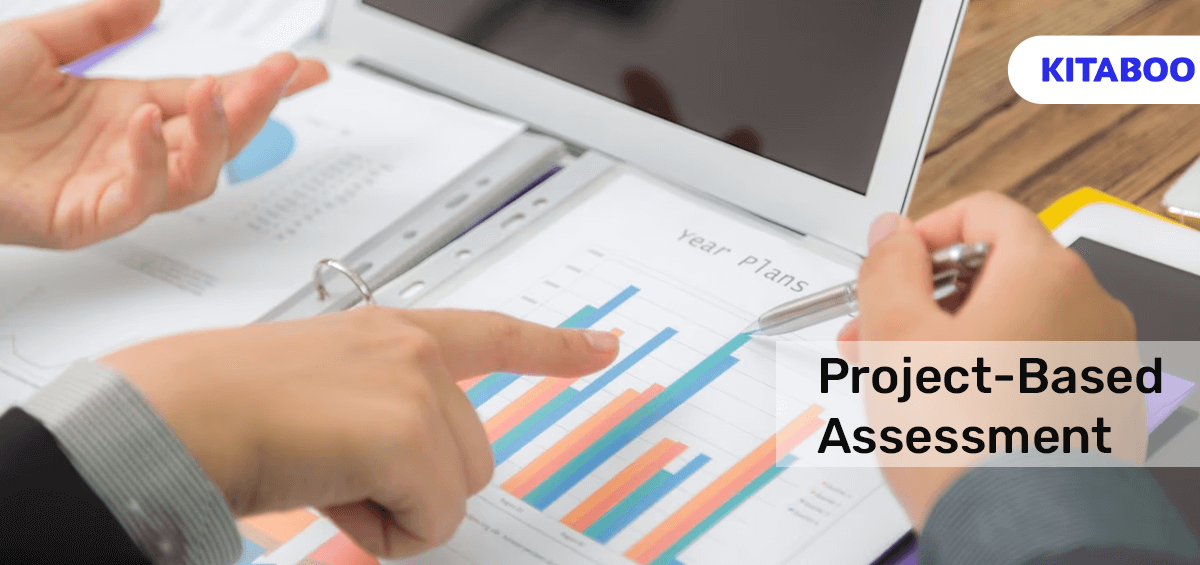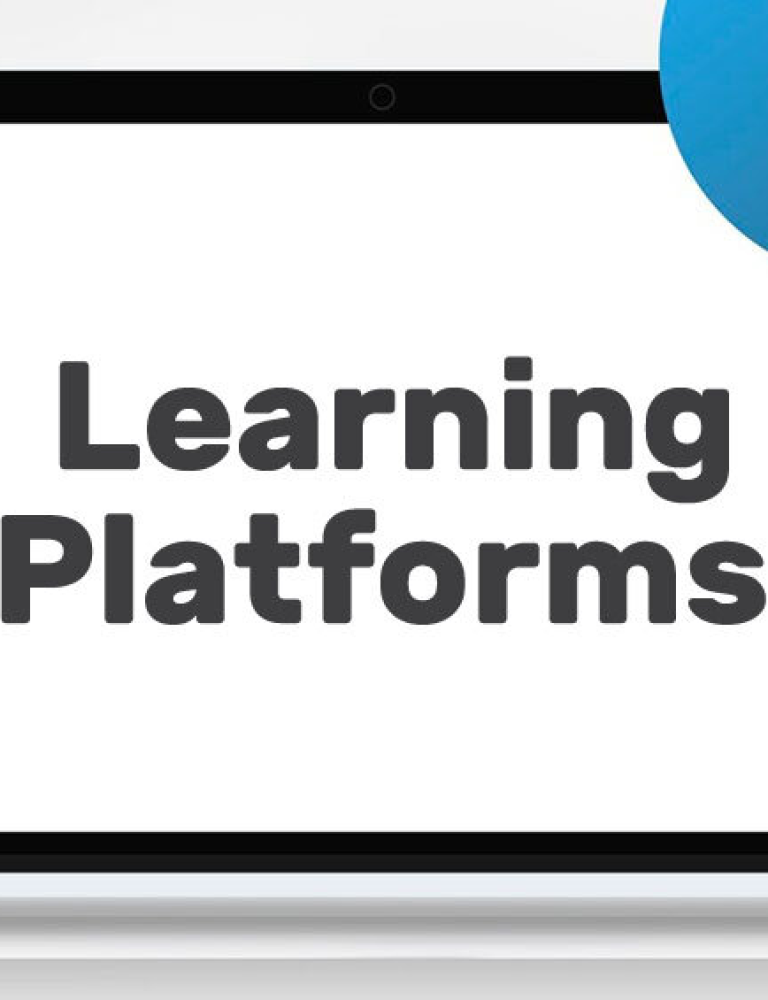Assessment holds an integral place in the K12 curriculum. It measures students’ progress through the year and helps educators identify learning gaps and academic strengths.
Traditional assessment methods have long held a standard place in the education system for evaluating students. In today’s constantly evolving world, however, the age-old techniques have become ineffective and led to the development of new teaching and assessment methods.
With the rise of new pedagogical practices, evaluations, and digital learning platforms like KITABOO, one prominent practice and evaluation method that stands out is project-based learning and assessment.
In this blog, we will delve into new forms of learning and further explore the benefits of project-based assessments.
Table of Contents:
I. What is Project-Based Learning?
II. What is Project-Based Assessment?
III. Benefits of Project-Based Assessment
- Holistic Type of Assessment
- Improves Depth and Retention of Knowledge
- Authentic Form of Assessment
- Ability to be Creative and Innovative
- Fosters Practical Skills Development
- Improves Motivation and Engagement Level
- Promotes Understanding of Integration Between Disciplines
IV. The End Note
What is Project-Based Learning?
Project-based learning is a student-centric teaching approach designed to engage students in meaningful project work. PBL provides students the opportunity to build their knowledge and skills by engaging in projects set around real-world problems.
What is Project-Based Assessment?
In contrast to traditional cumulative assessments that test students’ memorization skills, project-based assessment is a type of assessment that evaluates student learning after the completion of a specific project. It involves evaluating students’ learning at predetermined intervals during the year. Besides assessing students’ theoretical knowledge, this assessment method checks their practical knowledge according to preset criteria or assessment rubrics.
Benefits of Project-Based Assessment
The concept of evaluating students based on projects has emerged from the shortcomings of traditional assessments. PBA has established itself as an immensely important assessment method among teachers and students.
Let’s understand this more clearly by looking into the numerous benefits of project-based assessment:
1. Holistic Type of Assessment
The traditional form of pen-and-paper evaluation only measures students’ theoretical knowledge and thus fails to be a holistic measure of student learning. Unlike this, project-based assessment is a holistic type of assessment.
It combines formative and summative assessment methods to provide a comprehensive understanding of students’ skills, capabilities, and knowledge. Evaluating students regularly provides a real picture of their progress and identifies skills gaps.
2. Improves Depth and Retention of Knowledge
According to research, students adopt a surface-level approach to learning when traditional exams are approaching. Some students only go through the relevant concepts for exams, while others memorize their study material without understanding it. As a result, the traditional assessment approach proves ineffective for long-term knowledge retention.
On the other hand, in project-based assessment, students have to work on longer-term projects. This extensive nature compels students to delve deeper into the subject matter since a surface-level understanding would prove ineffective. As a result, students develop a comprehensive understanding of the subject matter, leading to long-lasting knowledge retention.
3. Authentic Form of Assessment
Traditional assessment actually ends up testing students’ abilities of rote memorization and information recall. On the other hand, project-based assessment tests the ability of students to come up with solutions to real-world problems.
By enabling students to engage in projects based on real-world situations, this authentic form of assessment allows them to demonstrate their theoretical knowledge and skills in a practical context, bridging the divide between theory and practice. This not only improves their employability prospects, but it can also improve student skills like communication skills, collaboration, professional identity, and awareness.
4. Ability to Be Creative and Innovative
In traditional exams, students need to think convergently since the answers to the questions are more or less fixed, leaving little scope for creativity. In contrast, students must exercise creative and innovative thinking in project-based assessment.
The project work requires students to consider multiple perspectives by thinking divergently. It further requires them to explore open-ended problems, analyze information from different angles, and develop unique solutions.
5. Fosters Practical Skills Development
With traditional assessment, students don’t get the opportunity to develop any important practical skills. Meanwhile, with project-based assessment, students can develop practical skills that prepare them for higher education and the workplace.
Project work requires students to tackle complex problems, conduct research, make statistical analyses, and present their findings. This, in turn, fosters the development of higher-order thinking skills, including critical thinking, decision-making, and problem-solving.
In the case of group project work, students need to collaborate with their peers. This enhances their ability to listen, communicate effectively, delegate work, and negotiate conflicts. Thus, group project work fosters the development of essential teamwork and collaborative skills.
6. Improves Motivation and Engagement Level
The level of engagement and motivation in traditional assessment is low. Students tend to engage in course materials only at the end of the term to pass their exams successfully.
However, with project-based assessment, that is not the case. To complete their project work on time, students must actively put in the effort throughout their term by setting goals, engaging in course materials, and managing time effectively. This kind of self-directed learning cultivates a sense of ownership over their learning process and drives them to be engaged and motivated throughout their learning period.
7. Promotes Understanding of Integration Between Disciplines
In a traditional assessment system, each exam covers a single subject matter without any integration with the others. In contrast, in a project-based approach, project work can require the study of multiple subjects or disciplines, enabling students to explore the connections between different areas of study. Thus, project-based assessment allows students to understand the interconnectedness of different disciplines better and develop essential multidisciplinary skills.
The End Note
Research reveals that project-based assessments deliver a better learning experience than traditional exams and foster better academic performance in students.
Considering the benefits of project-based assessment for students and teachers, it’s high time K12 publishers embrace PBA and start providing the appropriate resources.
One leading platform that can help K12 publishers is KITABOO, a professional digital publishing platform. With KITABOO, you can curate and combine different types of assessments and help educational institutions assess students holistically. As a firm believer in delivering an interactive and engaging assessment-taking experience, KITABOO is trusted by 15 million people from 30 countries.
To know more about interactive assessment solutions, get in touch with KITABOO.
Contact our expert team now and get started!
To know more, please write to us at KITABOO@hurix.com.
Suggested Reads:
Discover How An Ebook Conversion, Publishing & Distribution Platform Can Help You
Kitaboo is a cloud-based content platform to create-publish & securely distribute interactive mobile-ready ebooks.
You May Also Like









